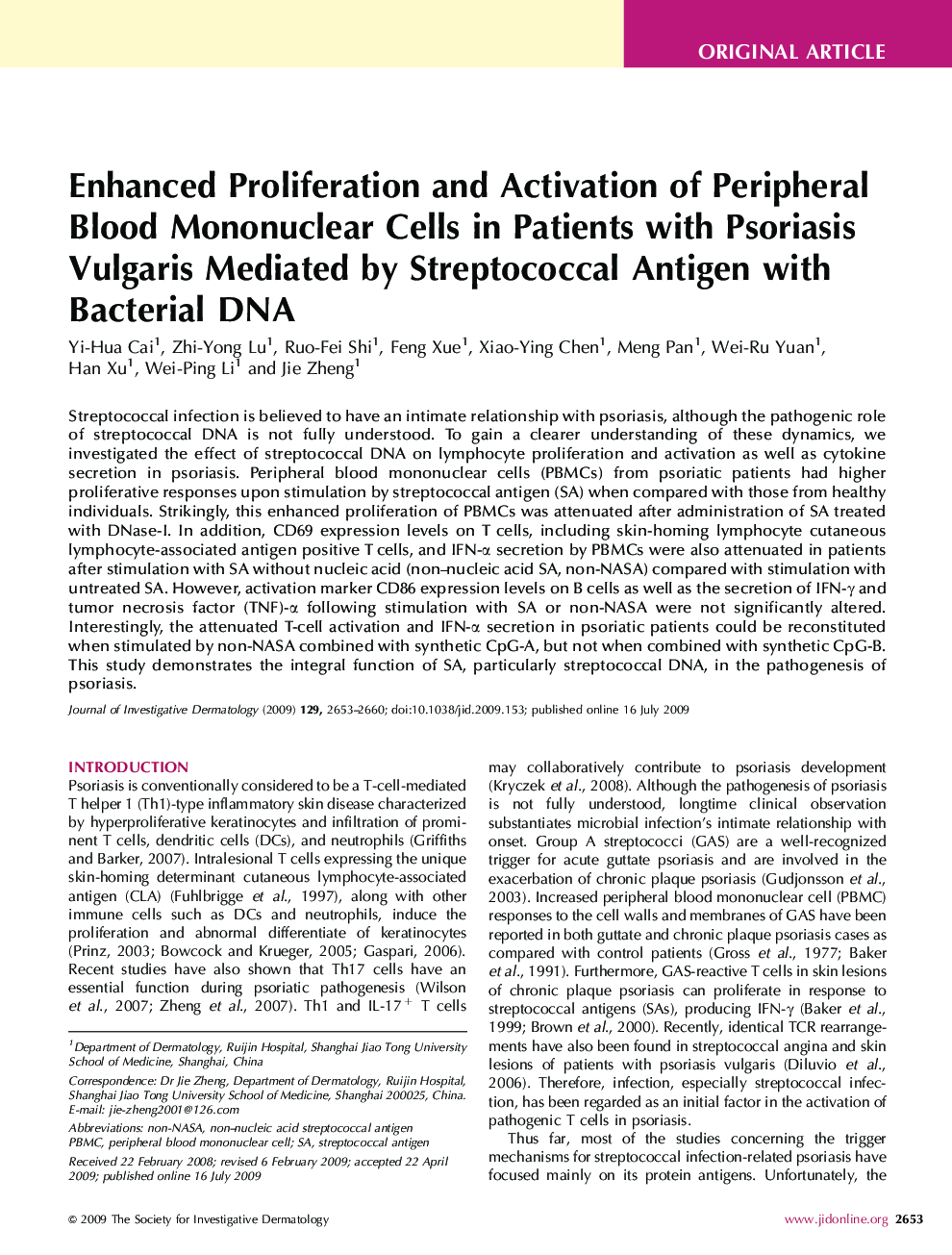| کد مقاله | کد نشریه | سال انتشار | مقاله انگلیسی | نسخه تمام متن |
|---|---|---|---|---|
| 3217463 | 1203602 | 2009 | 8 صفحه PDF | دانلود رایگان |

Streptococcal infection is believed to have an intimate relationship with psoriasis, although the pathogenic role of streptococcal DNA is not fully understood. To gain a clearer understanding of these dynamics, we investigated the effect of streptococcal DNA on lymphocyte proliferation and activation as well as cytokine secretion in psoriasis. Peripheral blood mononuclear cells (PBMCs) from psoriatic patients had higher proliferative responses upon stimulation by streptococcal antigen (SA) when compared with those from healthy individuals. Strikingly, this enhanced proliferation of PBMCs was attenuated after administration of SA treated with DNase-I. In addition, CD69 expression levels on T cells, including skin-homing lymphocyte cutaneous lymphocyte-associated antigen positive T cells, and IFN-α secretion by PBMCs were also attenuated in patients after stimulation with SA without nucleic acid (non–nucleic acid SA, non-NASA) compared with stimulation with untreated SA. However, activation marker CD86 expression levels on B cells as well as the secretion of IFN-γ and tumor necrosis factor (TNF)-α following stimulation with SA or non-NASA were not significantly altered. Interestingly, the attenuated T-cell activation and IFN-α secretion in psoriatic patients could be reconstituted when stimulated by non-NASA combined with synthetic CpG-A, but not when combined with synthetic CpG-B. This study demonstrates the integral function of SA, particularly streptococcal DNA, in the pathogenesis of psoriasis.
Journal: Journal of Investigative Dermatology - Volume 129, Issue 11, November 2009, Pages 2653–2660